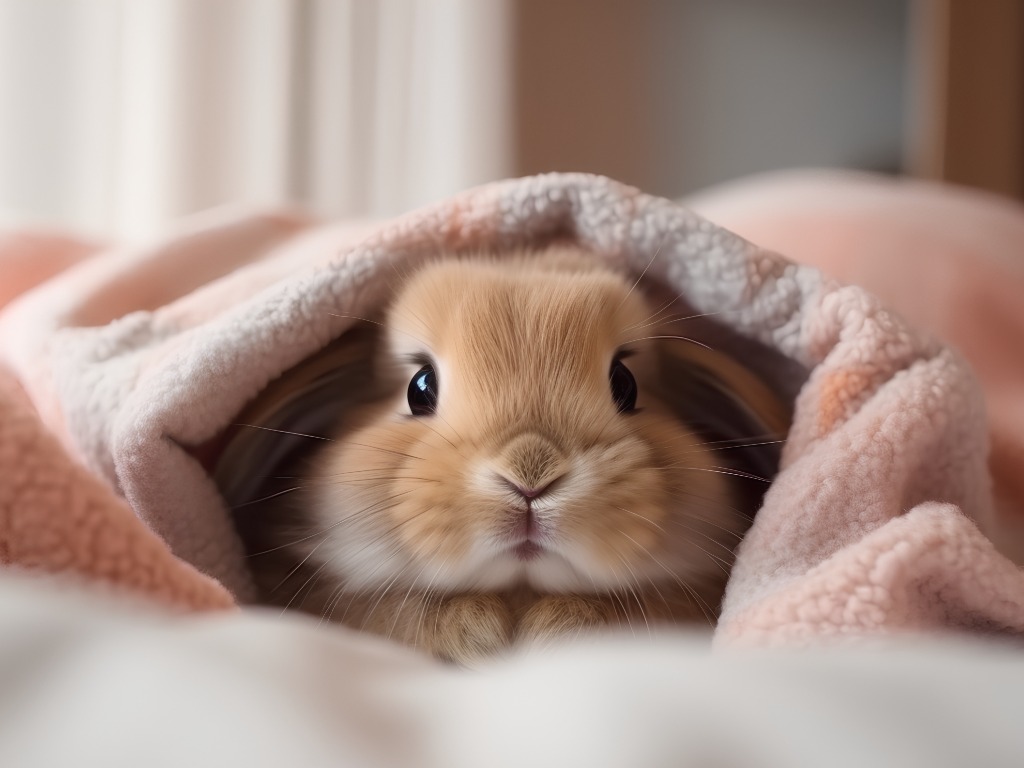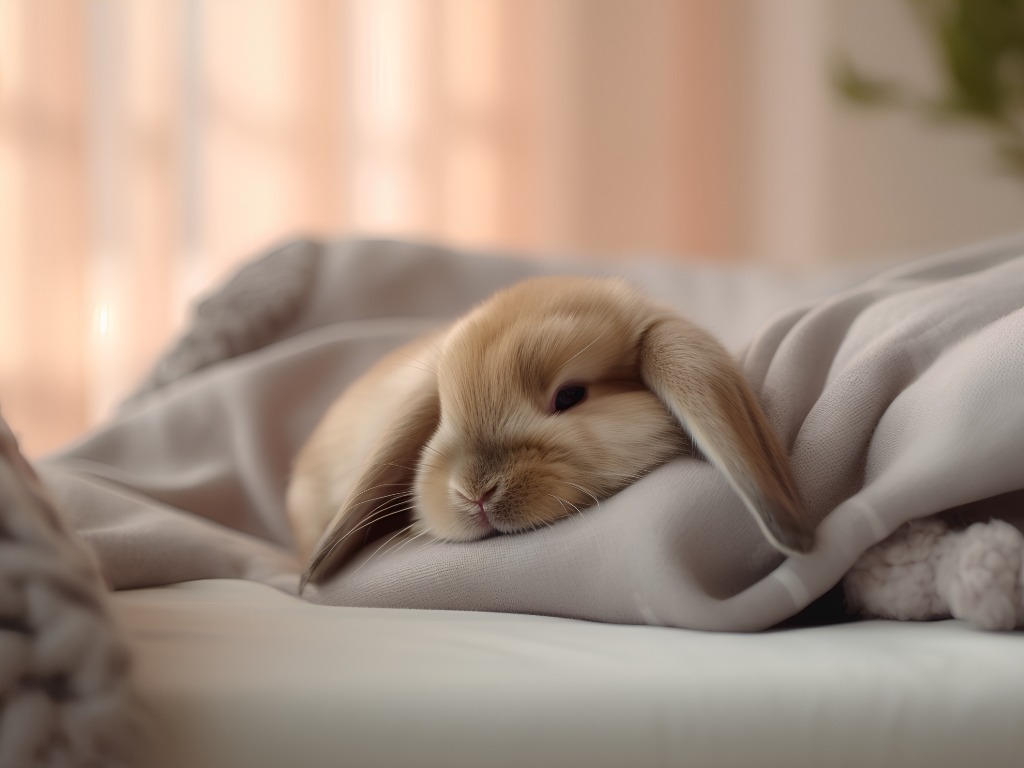How Big Do Mini Lop Bunnies Get? A Comprehensive Guide to Their Growth and Development
Mini Lop bunnies are a popular breed known for their compact size and floppy ears. On average, these rabbits reach a weight of 4.5 to 6.5 pounds (2 to 3 kg) once fully grown. Males and females can achieve this size, with some variation between individuals.

This breed is considered small to medium-sized, making Mini Lops ideal for prospective pet owners who have limited space. Their petite size contributes to their appeal and is important in responsible rabbit keeping.
Factors that affect the size of Mini Lop bunnies
The size of a Mini Lop bunny can depend on various factors, such as genetics, diet, and exercise. Genetics play a significant role in determining a bunny’s size, so if you want a larger Mini Lop bunny, you should look for breeders who specialize in breeding larger rabbits. A bunny’s diet can also affect its size, so feed it a balanced diet with plenty of hay, fresh vegetables, and a small amount of pellets. Exercise is also important for a bunny’s growth and development, so make sure your bunny has plenty of space to run around and play.
Average weight and size of Mini Lop bunnies
On average, Mini Lop bunnies weigh between 3 to 3.5 pounds (48 to 56 ounces, or 1.4 to 1.6 kg) and can grow up to 10 inches long. However, some Mini Lop bunnies can grow up to 6.5 pounds and 15 inches in length. The size of a Mini Lop bunny can also depend on its gender, with does being slightly smaller than bucks.
How to ensure your Mini Lop bunny reaches its full potential size
If you want your Mini Lop bunny to reach its full potential size, you should make sure it receives proper care and nutrition. Provide your bunny with plenty of space to exercise and play, and make sure it has a balanced diet that includes plenty of hay, fresh vegetables, and a small amount of pellets. You should also take your bunny to the vet regularly to ensure it is healthy and receiving proper care.
How to Care for Mini Lop Bunnies
Mini Lop bunnies are small, adorable pets that require proper care to live a healthy and happy life. Here are some important factors to consider when caring for your Mini Lop bunny.
Feeding
Mini Lop bunnies require a diet that is high in fiber to maintain healthy digestion. They should be fed hay, fresh vegetables, and a limited amount of pellets. It is important to avoid feeding them too many treats or sugary foods, as this can lead to health issues.
Housing
Mini Lop bunnies need a spacious and well-ventilated enclosure that allows them to move around freely. The enclosure should be at least 3-4 feet wide, 2 feet deep, and 3 feet high. A wire-walled cage is recommended to ensure proper ventilation. It is important to clean the enclosure regularly to maintain hygiene.
Exercise
Mini Lop bunnies are active animals that require regular exercise to maintain their physical and mental health. They should be allowed to run outside their enclosure for at least a few hours daily. It is important to supervise them during this time to ensure their safety.
Grooming
Mini Lop bunnies have a thick, soft coat that requires regular grooming to prevent matting and hairballs. They should be brushed at least once a week using a soft-bristled brush. It is also important to trim their nails regularly to prevent them from growing too long.
In summary, Mini Lop bunnies require a balanced diet, a spacious and well-ventilated enclosure, regular exercise, and proper grooming to maintain their health and happiness. Following these guidelines ensures that your Mini Lop bunny lives a long and happy life.
Common Health Issues in Mini Lop Bunnies

Mini Lop bunnies are generally healthy and sturdy, but like all animals, they can still develop health issues. Mini Lop bunny owners must be aware of the common health issues their pets may face, so they can take the necessary precautions to prevent them. Here are some of the most common health issues that Mini Lop bunnies may encounter:
Dental Problems
Mini Lop bunnies have continuously growing teeth, meaning they need to chew on hay and other fibrous materials to wear down their teeth. If they do not get enough roughage in their diet, their teeth can grow too long and cause dental problems such as overgrown incisors, molars, and abscesses. Symptoms of dental issues in Mini Lop bunnies include drooling, difficulty eating, and weight loss.
Gastrointestinal Stasis
Gastrointestinal stasis is a common health issue in Mini Lop bunnies that occurs when the digestive system slows down or stops working altogether. This can be caused by various factors, including a diet that is too low in fiber, stress, and dehydration. Symptoms of gastrointestinal stasis in Mini Lop bunnies include a loss of appetite, lethargy, and a decrease in fecal output.
Flystrike
Flystrike is potentially fatal when flies lay their eggs on a rabbit’s skin, and the larvae hatch and feed on the rabbit’s flesh. This can happen if the rabbit’s fur is dirty or matted or has a wound or skin infection. Symptoms of flystrike in Mini Lop bunnies include a foul odor, lethargy, and decreased appetite.
Myxomatosis
Myxomatosis is a viral disease that is spread by fleas and mosquitoes. It can cause swelling of the eyes, nose, and genitals, as well as fever, lethargy, and a loss of appetite. Unfortunately, myxomatosis has no cure, and the disease is often fatal.
Viral Hemorrhagic Disease
Viral hemorrhagic disease is a highly contagious viral disease spread through contact with infected animals or contaminated objects. It can cause fever, lethargy, loss of appetite, internal bleeding, and organ failure. Unfortunately, there is no cure for viral hemorrhagic disease, which is often fatal.
In conclusion, Mini Lop bunnies are generally healthy and sturdy but can still develop health issues like any other animal. Mini Lop bunny owners need to be aware of the common health issues their pets may face and take the necessary precautions to prevent them.